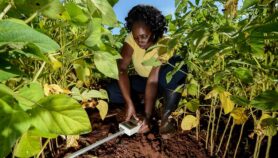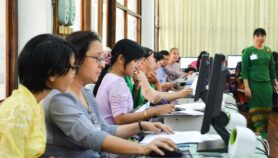31/05/12
WHO to continue talks on major reforms to health R&D
By: Gozde Zorlu
Send to a friend
The details you provide on this page will not be used to send unsolicited email, and will not be sold to a 3rd party. See privacy policy.
[GENEVA] Proposals for new mechanisms to improve the funding and coordination of health research for the developing world, potentially including a binding international convention, will be formally discussed over the next year, the World Health Assembly concluded last week (21–26 May) in Geneva, Switzerland.
The WHO’s Consultative Expert Working Group on Research and Development (CEWG) has spent a year analysing more than 100 proposals about how to secure new, innovative and sustainable sources of funding, and how to improve the use of existing resources to meet the health research and development (R&D) needs of developing countries.
Its report, published last month (5 April), said current market mechanisms and publicly funded research do not provide adequate investment in R&D. As a result, "poor people suffer and die because there are no effective health technologies like medicines, vaccines or diagnostics".
It added: "Markets fail because intellectual property rights are not an effective incentive in these circumstances, and public investment is also dominated by the rich world and its own health needs".
Among its key recommendations were a binding international convention on R&D, a commitment by governments to spend 0.01 per cent of GDP (gross domestic product) on health R&D — which would double current investments — and new sources of sustainable funding, such as taxation on air travel and alcohol.
It also called for delinking the costs of R&D from the price of products, open knowledge innovation and the increased use of patent pools.
And while all countries at the World Health Assembly, the policy-making body of the WHO, agreed last week that the current system needs to be improved, there were differences of opinion on what set of solutions should be implemented.
Kenya called for a binding convention. But there was strong opposition from Australia, Canada, the European Union, Japan, Monaco, Switzerland and the United States. The Union of South American Nations — especially the Brazilian delegation — removed the deadlock by calling for more discussions.
The meeting’s final resolution, published last week (25 May), calls for a formal process to consider and discuss the CEWG recommendations over the next year.
Countries are expected to consult with national stakeholders and continue discussions at WHO regional committee meetings this summer.
The WHO has scheduled a meeting in October to discuss the report’s recommendations.
Countries will be expected to report back to the WHO’s Executive Board meeting in January 2013, in time for negotiations at the next World Health Assembly in May 2013.
John-Arne Røttingen, chair of the CEWG group and co-author of the report, said he was pleased that all countries had agreed on the need for a sustainable international solution.
"The steps described in the agreed resolution are a good way forward that may pave the way for a solution at next year’s assembly," he said.
He called on academic groups, think tanks and non-governmental organisations to inform the debate by developing and discussing alternative sustainable solutions.
Michelle Childs, director of policy and advocacy for the Access Campaign of Médecins Sans Frontières, in Switzerland, said she is "disappointed" not to see more concrete steps taken at last week’s meeting, and hopes the discussion process maintains its momentum to secure a binding convention.
"What was really encouraging is that all countries agree that the system is broken and needs to be addressed," she said.
Link to CEWG report ![]() [1.39MB]
[1.39MB]













